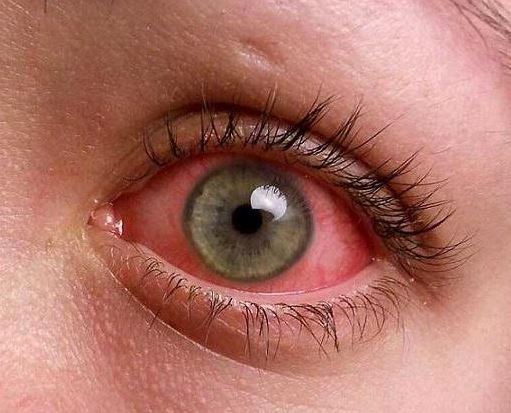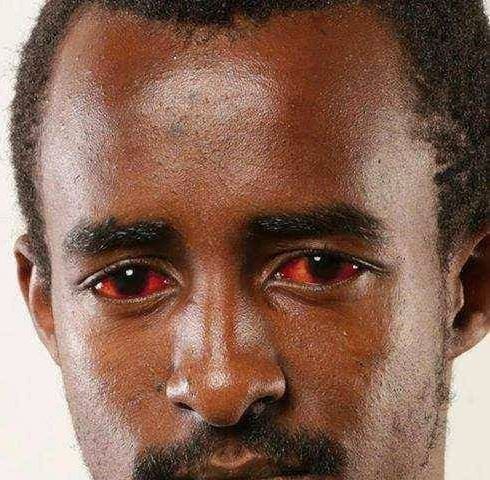The Tanzanian Ministry of Health has warned citizens to take precautions against a recent outbreak of viral keratoconjunctivitis, a red eye infection that affects the upper layer of the eyeball.
The warning was issued on January 15, 2024, by Dr. Pascal Ruggajo, Director of Medical Services at the Ministry of Health, on behalf of the Chief Medical Officer, Dr. Tumaini Nagu.
Dr. Ruggajo said that the symptoms of the disease include itching, burning, pain, tearing, and discharge of yellow mucus from the eyes.
“Initial investigation results show that this viral infection of the upper layer of the eyeball, known as viral keratoconjunctivitis, is a highly contagious disease. There is no specific treatment for this disease, and even without treatment, the symptoms will go away on their own within two weeks,” Dr. Ruggajo said.
Dr. Ruggajo said that the trend of the disease shows a significant increase in the number of patients arriving at health facilities with the disease.

“In the period from December 22, 2023, to January 11, 2024, there has been a significant increase in the number of people with this disease who have arrived at health facilities for treatment. For example, in the Dar es Salaam region, there are 869 new cases, while in December 2023, there were only 17 cases,” Dr. Ruggajo explained.
He also emphasized that hygiene is important in preventing the spread of the infection to others. Due to the rapid spread of the disease, this infection leads to outbreaks that are spread through a virus by more than 80%.
Dr. Ruggajo advised citizens not to use informal or unprescribed drugs and not to use eye drops used by another patient to avoid harm, as eye drops are different and for different uses.
Tips for Preventing Viral Keratoconjunctivitis
- Wash your hands frequently with soap and water.
- Avoid touching your eyes, especially if your hands are dirty.
- Cover your mouth and nose when you sneeze or cough.
- Avoid close contact with people who are sick.
If you experience symptoms of viral keratoconjunctivitis, see a doctor immediately.
Additional Information
- Causes
In addition to the causes mentioned in the original article, viral keratoconjunctivitis can also be caused by:
- Allergies to pollen, dust, or other allergens
- Chemical exposure to smoke, fumes, or other irritants
- Autoimmune diseases such as rheumatoid arthritis or Sjögren’s syndrome
- Symptoms
In addition to the symptoms mentioned in the original article, viral keratoconjunctivitis can also cause:
- Photophobia, or sensitivity to light
- Blurred vision
- Fever
- Headache
- Muscle aches
- Fatigue
- Treatment
There is no specific treatment for viral keratoconjunctivitis. However, there are medications that can help relieve symptoms, such as:
- Antihistamines to reduce itching and inflammation
- Decongestants to reduce redness and swelling
- Pain relievers to relieve pain and discomfort
In some cases, antibiotics may be prescribed to treat a secondary bacterial infection.
- Prevention
The best way to prevent viral keratoconjunctivitis is to practice good hygiene. This includes:
- Washing your hands frequently with soap and water
- Avoiding touching your eyes
- Covering your mouth and nose when you sneeze or cough
If you think you may have viral keratoconjunctivitis, it is important to see a doctor. Early diagnosis and treatment can help to reduce the severity of the infection and prevent the spread of the virus to others.
Additional Tips for Parents of Children with Viral Keratoconjunctivitis
- Keep your child home from school or daycare until they are no longer contagious.
- Wash your hands frequently and avoid touching your child’s eyes.
- If your child wears contact lenses, have them removed and replaced by your eye doctor.
- Use a cool compress to help relieve your child’s discomfort.
Conclusion
Viral keratoconjunctivitis is a common and contagious eye infection. While there is no cure, most people recover completely within a few weeks. By practicing good hygiene and seeking prompt medical attention if you or your child develops symptoms, you can help to prevent the spread of the virus and reduce the severity of the infection.

